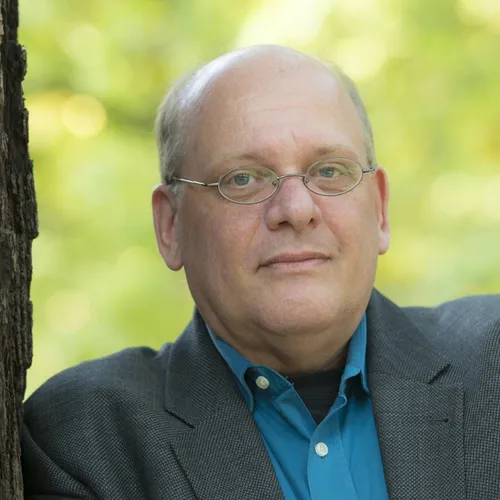
Detlev Glanert, interview with David Kettle, RSNO
Your Violin Concerto No. 2 is obviously connected with Beethoven’s famous letters to his ‘Immortal Beloved’. What’s been your own relationship with Beethoven and his music? Do you feel you’ve taken inspiration from him and his works? What kind of impact do you feel his music has had on the way you approach creating music yourself?
Of course Beethoven is a center point of education in classical music. His unbelievable invention of gestures and textures goes along with the most scrupulous thematic work – this is indeed somewhat to learn for everybody, also for me. His perfect balance between popular music and revolutionary invention is one of my models, and was perhaps never reached again in this quality.
What’s your particular interest in these letters that he wrote to his ‘Immortal Beloved’? There’s obviously lots of speculation and research into who the recipient was intended to be – how significant is knowing that, do you think? What do you feel they show about Beethoven the man?
- Obviously Beethoven was emotional very connected to the addressed person he finds very tender words and makes a self description of his emotional state and what happened to him these days – but it is not significant for me to know the addressed person, not even Beethoven as a man. It is quite more interesting, that he uses words like music notes and motifs, he creates tension and development like in his scores. To read the letter today is still very touching, there is something in it, what also people from today can think or say.
There are clearly direct connections between the Concerto and the famous letters, and its three movements correspond with the three sections or time periods in which Beethoven wrote. Could you tell me a little about those connections? To what extent does the music evoke or reflect the specific writing, themes and ideas of the letters?
I tried to translate Beethovens “composed” letter in a free way into my own music, mainly with two different sound complexes: on is attached to all self descriptions connected to the real world, the other to the emotional and personal level. It never becomes programmatically music in the sense of Strauss, it is more the starting (jumping) point for my own composing fantasy. If we read the letter carefully between the lines, it is a big “adieux” to the beloved one, and the ending is perhaps the most personal and moving goodbye ever written.
Why do you think the letters have found musical connections in the form of a violin concerto?
It is interesting to see, that some motifs (the post coach, the weather, the future, the “you”) are going through the letter like themes of a large Beethoven orchestral work. Individual evocation is combined with more general situations, in a big and constant rhetoric flow, sometimes like counterpoints. It is constructed like a piece of him. That brought me to the plan to read the letter like an imagined score of a piece of my own music.
What connections do you feel the violin has to Beethoven in general, and to these letters? Would it be too simplistic to see the violin soloist as playing a role, either as Beethoven writing the letters or the ‘Immortal Beloved’ receiving them, or as the intended recipient, or even as Beethoven’s imagined idea of his recipient?
The solo violin represents the individual level, it can be Beethoven, and, or the beloved lady. It can change roles, following the context. But it is embedded into “circumstances” (Beethoven would say “Schicksal”), and both beings are connected in conflicts and unities. The violin is a breathing instrument, and is for my needs quite more adapted as a – let’s say – solo piano, what would be quite too much Beethoven like and dominating. The big model is of course his violin concerto.
Have you used or referred to any music by Beethoven in the Concerto itself, either as direct quotation or more 'hidden' within the score? Or did you look to any particular pieces by Beethoven as more general models?
There is a quotation from Beethovens scetch book, a thematic cell, what he never used. But I prefer to leave it hidden.